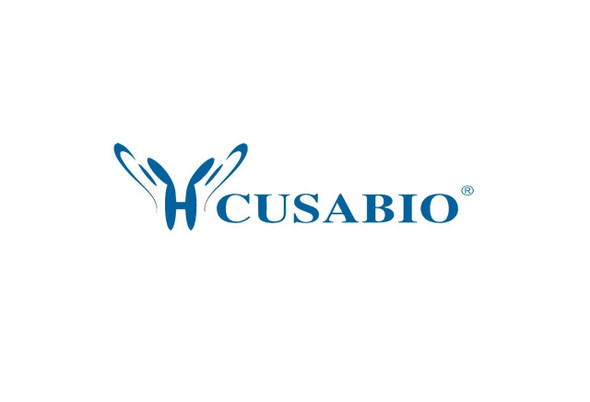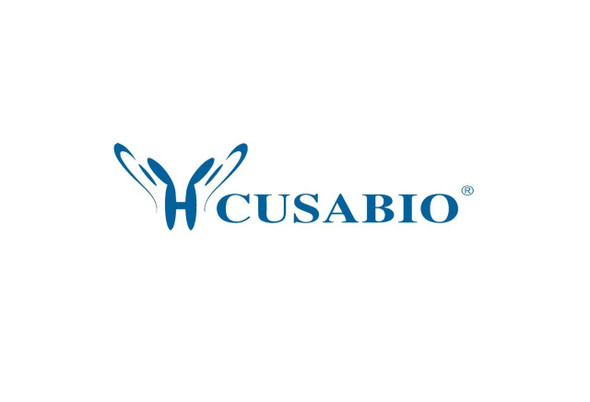Cusabio Human Recombinants
Recombinant Human NACHT, LRR and PYD domains-containing protein 3 (NLRP3), partial | CSB-EP822275HU3
- SKU:
- CSB-EP822275HU3
- Availability:
- 3 - 7 Working Days
Description
Recombinant Human NACHT, LRR and PYD domains-containing protein 3 (NLRP3), partial | CSB-EP822275HU3 | Cusabio
Alternative Name(s): Angiotensin/vasopressin receptor AII/AVP-like (CLR1.1) (Cold-induced autoinflammatory syndrome 1 protein) (Cryopyrin) (PYRIN-containing APAF1-like protein 1) (C1orf7) (CIAS1) (NALP3) (PYPAF1) (Caterpiller protein 1.1)
Gene Names: NLRP3
Research Areas: Others
Organism: Homo sapiens (Human)
AA Sequence: LEDYPPQKGCIPLPRGQTEKADHVDLATLMIDFNGEEKAWAMAVWIFAAINRRDLYEKAKRDEPKWGSDNARVSNPTVICQEDSIEEEWMGLLEYLSRISICKMKKDYRKKYRKYVRSRFQCIEDRNARLGESVSLNKRYTRLRLIKEHRSQQEREQELLAIGKTKTCESPVSPIKMELLFDPDDEHSEPVHTVVFQGAAGIG
Source: E.coli
Tag Info: N-terminal 6xHis-tagged
Expression Region: 29-231aa
Sequence Info: Partial
MW: 27.7 kDa
Purity: Greater than 90% as determined by SDS-PAGE.
Relevance: As the sensor component of the NLRP3 inflammasome, plays a crucial role in innate immunity and inflammation. In response to pathogens and other damage-associated signals, initiates the formation of the inflammasome polymeric complex, made of NLRP3, PYCARD and CASP1 (and possibly CASP4 and CASP5). Recruitment of proCASP1 to the inflammasome promotes its activation and CASP1-catalyzed IL1B and IL18 maturation and secretion in the extracellular milieu. Activation of NLRP3 inflammasome is also required for HMGB1 secretion. The active cytokines and HMGB1 stimulate inflammatory responses. Inflammasomes can also induce pyroptosis, an inflammatory form of programmed cell death. Under resting conditions, NLRP3 is autoinhibited. NLRP3 activation stimuli include extracellular ATP, reactive oxygen species, K+ efflux, crystals of monosodium urate or cholesterol, amyloid-beta fibers, environmental or industrial particles and nanoparticles, cytosolic dsRNA, etc. However, it is unclear what constitutes the direct NLRP3 activator. Activation in presence of cytosolic dsRNA is mediated by DHX33. Independently of inflammasome activation, regulates the differentiation of T helper 2 (Th2) cells and has a role in Th2 cell-dependent asthma and tumor growth. During Th2 differentiation, required for optimal IRF4 binding to IL4 promoter and for IRF4-dependent IL4 transcription. Binds to the consensus DNA sequence 5'-GRRGGNRGAG-3'. May also participate in the transcription of IL5, IL13, GATA3, CCR3, CCR4 and MAF
Reference: "PYPAF1: a PYRIN-containing APAF1-like protein that assembles with ASC and activates NF-kB." Manji G.A., Wang L., Geddes B.J., Brown M., Merriam S., Al-Garawi A., Mak S., Lora J.M., Briskin M., Jurman M., Cao J., DiStefano P.S., Bertin J. J. Biol. Chem. 277:11570-11575(2002)
Storage: The shelf life is related to many factors, storage state, buffer ingredients, storage temperature and the stability of the protein itself. Generally, the shelf life of liquid form is 6 months at -20?/-80?. The shelf life of lyophilized form is 12 months at -20?/-80?.
Notes: Repeated freezing and thawing is not recommended. Store working aliquots at 4? for up to one week.
Function:
Involvement in disease:
Subcellular Location:
Protein Families:
Tissue Specificity:
Paythway:
Form: Liquid or Lyophilized powder
Buffer: If the delivery form is liquid, the default storage buffer is Tris/PBS-based buffer, 5%-50% glycerol. If the delivery form is lyophilized powder, the buffer before lyophilization is Tris/PBS-based buffer, 6% Trehalose, pH 8.0.
Reconstitution: We recommend that this vial be briefly centrifuged prior to opening to bring the contents to the bottom. Please reconstitute protein in deionized sterile water to a concentration of 0.1-1.0 mg/mL.We recommend to add 5-50% of glycerol (final concentration) and aliquot for long-term storage at -20?/-80?. Our default final concentration of glycerol is 50%. Customers could use it as reference.
Uniprot ID: Q96P20
HGNC Database Link: N/A
UniGene Database Link: N/A
KEGG Database Link: N/A
STRING Database Link: N/A
OMIM Database Link: N/A









